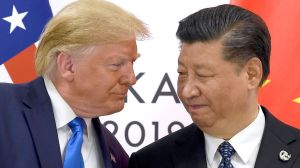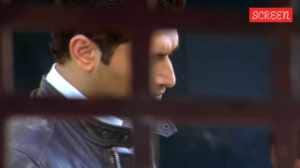Tactical gain, strategic blunder
It would be fair to assume that a military that can take out Bugti can do the same with bin Laden

The killing of the Baloch leader Nawab Akbar Bugti by the Pakistani military on August 26 looks like a tactical victory for Islamabad. But it may prove to be a strategic setback for General Musharraf personally, the Pakistan military institutionally and the troubled state that has been unsuccessfully trying to intimidate and suppress regional and provincial aspirations. The halo surrounding Nawab Bugti — no paragon of moderation or non-violence himself — has now been further burnished. Baloch nationalism, simmering since 1948, is likely to enter a more militant phase. This deeply entrenched sentiment was best summed up by the late Bugti himself who once remarked: “I have been a Baloch for several centuries. I have been a Muslim for 1400 years. I have been a Pakistani for just over 50.”
Some tentative inferences may be drawn from the bloody and tragic sequence of events of August 26 that point to the complex challenges that General Musharraf now faces. The Pakistan establishment has gone into overdrive to project Bugti’s killing as ‘accidental’, they insist that it is not the policy of the state to eliminate dissenters in this manner. However, the domestic debate in the Pakistan military over the last year has seen the emergence of two schools of thought — one that favoured the use of overwhelming military force to eliminate certain constituencies that challenged the writ of the state, including the use of air power, a la USA and Israel, and those who favoured moderation mixed with dialogue. Balochistan was a case in point and a parliamentary committee under Senator Mushahid Hussein was set up in 2005 to evolve a strategy.
General Musharraf himself would have seen the logic in the proposition that in the run-up to elections in 2007 and given his own image as an enlightened military leader who is keen to make the transition to democracy, a martyred Bugti would be counter-productive to his larger objectives. Yet Bugti was killed in a swift and covert military operation. It could be inferred from this that elements within the Pakistan military are bucking the general.
Compounding this internal military challenge is the possibility that renewed armed resistance by the Baloch National Army — whose leadership, incidentally, is with the other tribal leaders — will drain the Pakistan military’s already stretched resources. In the course of one of his interviews, Nawab Bugti used to assert that a few hundred Baloch guerillas could tie down five divisions of the Pakistan Army. The military is already engaged in battling the Al-Qaida and Taliban elements along the Pak-Afghan border and some reports indicate that Washington is unhappy with the current spate of violence and the lukewarm efforts of the military.
What the Bugti killing demonstrates unequivocally is that Pakistan’s military now has the technological capability to prosecute the war against insurgency and terrorism with great lethality. Whether through satellite phone intercepts or the use of helicopter gunships, it has established a certain operational credibility despite the harsh and sparsely inhabited terrain of the Baloch region. Nawab Bugti assumed — wrongly — that his craggy hiding places were impregnable. If this be the case, it would be fair to assume that a military that can take out Bugti can do the same with bin Laden.
US pressure in this direction is probable. However, this exigency will add to General Musharraf’s domestic problems. The religious right is already accusing him of succumbing to Uncle Sam — the proposed amendment to the Hudood law is a case in point.
Conservative forces are deliberately stoking religious sentiment to derail what is otherwise a commendable initiative which will restore some semblance of equity to the women of Pakistan. Consequently, Musharraf’s image on the Pakistan street is that of a puppet of the US — anti-democratic and someone who is tampering with the shariat.
With Bugti’s death, Musharraf is already being compared to his military predecessors who contributed to the break-up of Pakistan and the run-up to 2007 is clearly not going as per the script. Before his violent death Nawab Bugti had demanded that General Musharraf and the Pakistan military go back to the barracks where they belong. This is the spectre that is going to haunt the ruling establishment in Rawalpindi.
The writer is a defence analyst






- 01
- 02
- 03
- 04
- 05

























